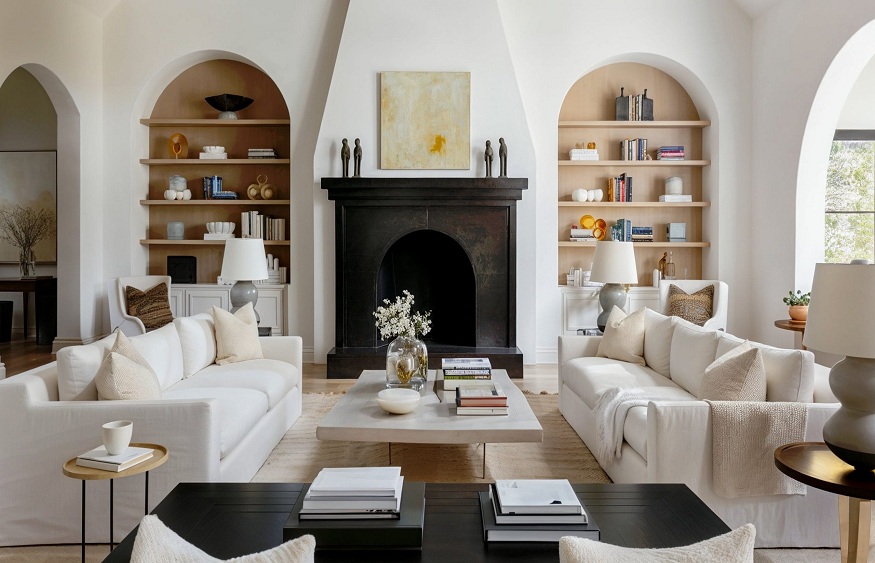Los Angeles, a city synonymous with creativity and innovation, is home to some of the most talented interior designers in the world. Whether you’re looking to revamp a cozy apartment, design a luxurious villa, or update a commercial space, collaborating with Los Angeles interior designers can transform your vision into reality. However, working with a professional designer requires careful planning, clear communication, and a shared understanding of goals.
In this guide, we’ll explore the steps to successfully collaborate with an interior designer and achieve the dream makeover you’ve always envisioned.
Why Work with an Interior Designer?
Before diving into the collaboration process, it’s essential to understand why hiring a designer is a worthwhile investment.
Expertise and Creativity
Interior designers possess a trained eye for aesthetics, functionality, and spatial harmony. They can envision possibilities you may not have considered and provide innovative solutions tailored to your needs.
Access to Resources
Professional designers often have access to exclusive materials, furnishings, and industry connections, ensuring your space is both unique and high-quality.
Time and Cost Efficiency
While hiring a designer involves an upfront cost, their expertise can save you from expensive mistakes and streamline the renovation process.
Steps to Collaborate with an Interior Designer
1. Define Your Vision
Before meeting with a designer, take time to understand what you want to achieve. Create a mood board or collect images that reflect your style preferences, colors, and themes.
- Tip: Be realistic about what you want and what can be achieved within your budget and space constraints.
2. Research and Choose the Right Designer
Los Angeles boasts a diverse pool of design talent, so finding the right fit is crucial. Look for designers whose portfolios align with your aesthetic and project requirements.
- Key Considerations:
- Experience with similar projects
- Positive client reviews
- Strong communication skills
3. Set a Clear Budget
Discussing finances early in the process ensures that both you and the designer are on the same page. Be transparent about your budget and expectations.
- Why It’s Important: A clear budget allows the designer to make informed decisions about materials, furnishings, and labor.
4. Communicate Your Needs and Preferences
Effective collaboration relies on open communication. Share your lifestyle habits, functional requirements, and any specific must-haves.
- Example: If you entertain frequently, prioritize an open-concept living area with ample seating.
5. Trust the Designer’s Expertise
While it’s important to convey your vision, giving the designer creative freedom can lead to stunning results. Remember, they are professionals with a deep understanding of interior design in Los Angeles.
Navigating the Design Process
1. Initial Consultation
The first meeting is an opportunity to discuss your goals, budget, timeline, and design preferences. The designer may also visit the site to assess its potential.
2. Concept Development
Based on your input, the designer will create mood boards, sketches, or 3D renderings to present their ideas.
- What to Do: Provide constructive feedback and be specific about what you like or dislike.
3. Material and Furniture Selection
Your designer will guide you through selecting materials, finishes, and furnishings that align with the agreed-upon concept.
- Tip: Take advantage of the designer’s access to unique and high-quality pieces.
4. Execution and Project Management
Once the design plan is finalized, the implementation phase begins. The designer may coordinate with contractors, oversee installations, and ensure the project stays on track.
- Your Role: Stay involved by attending progress meetings and addressing any concerns promptly.
5. Final Touches
The last stage involves styling the space with decor, artwork, and other elements that bring the design to life.
Common Challenges and How to Overcome Them
1. Misaligned Expectations
To avoid misunderstandings, clarify all details upfront, from the scope of work to project timelines.
2. Budget Overruns
While unexpected expenses can arise, regular updates and open communication can help manage costs.
3. Decision Fatigue
The endless options for furniture, colors, and layouts can be overwhelming. Rely on your designer to narrow down choices and guide you.
Tips for a Successful Collaboration
1. Be Open-Minded
While it’s good to have preferences, flexibility allows for creative solutions that may exceed your expectations.
2. Prioritize Functionality
Aesthetic appeal is important, but a truly great design also meets your practical needs.
3. Embrace Local Trends
Los Angeles is known for its unique design elements, such as indoor-outdoor living and eco-friendly materials. Incorporate these to reflect the city’s vibe.
4. Stay Involved
Active participation ensures that the final design feels personal and aligned with your vision.
Finding Inspiration in Los Angeles Design
Los Angeles’ diverse culture and architecture provide endless inspiration for interior design. From mid-century modern homes in the Hollywood Hills to Spanish Revival styles in Beverly Hills, the city offers a rich tapestry of ideas.
Design Trends in Los Angeles:
- Sustainability: Using reclaimed wood and energy-efficient features.
- Minimalism with Personality: Clean lines paired with bold statement pieces.
- Indoor-Outdoor Flow: Seamlessly blending interiors with natural surroundings.
Collaborating with Los Angeles interior designers is an exciting journey that can transform your space into a functional and beautiful haven. By clearly communicating your vision, trusting their expertise, and staying actively involved, you can achieve a design that reflects your personality and lifestyle.
Whether you’re starting from scratch or giving your home a fresh update, the vibrant world of interior design in Los Angeles offers endless opportunities to create the space of your dreams. Let this collaboration be a harmonious blend of your ideas and the designer’s creativity for a truly remarkable transformation.

